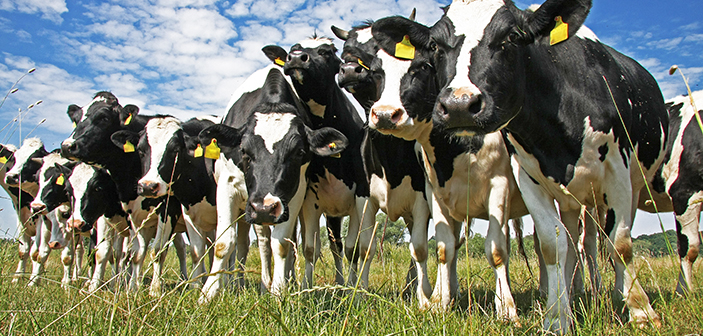Diet is at the heart of beef’s race to net zero, according to Dr Karen Beauchemin , a federal scientist in Canada and an international authority on Green House Gas (GHG) emissions from livestock farming.
Seaweeds, fat from crushed oilseed rape and feed additives have all been part of a practical research programme she and her colleagues are carrying out, looking at both feeding and breeding to make the economics and environmental commitment stack up for beef producers.
“The goals of economic and environmental sustainability go hand-in-hand in beef farming and are complementary,” she said. “We have discovered multiple methods of reducing methane emissions in beef production, but the number one way is still to improve overall efficiency whether that’s through more kilograms reared per cow or improved grass utilisation.”
The studies have shown that methane is a direct result of the amount and quality of food, and in this week’s QMS podcast, Dr Beauchemin, who has worked in animal nutrition for over 30 years, looks at diet-related strategies that can be used to reduce methane emission patterns, and achieving the balance for producers to make cumulative gains.
“The research shows that methane emissions are highest when diets are higher in fibre, such as grass or silage, but this can be mitigated by cutting silage earlier to minimise the starch levels. And, although by feeding concentrates and grains producers can reduce emissions, we don’t want to overfeed these to beef cattle as their unique ability is to digest highly fibrous feeds like grass that cannot be consumed by humans and make use of that energy to produce food that can be.”
In Canada, consumers have been paying a carbon tax since 2019, $20/tonne soon to rise to $170/tonne, but it is not currently applicable on agricultural products. There is pressure from the retailers, however, and the Canadian beef industry has introduced a low carbon beef framework to allow retailers to source from producers who are working to reduce their environmental impact. The “badge” on the supermarket shelf is more than GHGs, however, explains Dr Beauchemin. It includes land use, water management, animal welfare and a healthy work environment.
On the challenges of consumer perception of livestock production on the environment, she added:
“Cattle do produce GHGs but they are producing food. With cars we’re talking about fossil fuels that are extracted from the earth and the CO2 emissions emitted are in the atmosphere for a long time. Methane from animals is part of a biological cycle. We have energy trapped in plants by photosynthesis, those plants are converted by animals into energy that goes into producing meat and milk for human consumption. The methane emitted in this system is short lived – it is broken down in about 12 years. Also, the animals are maintained on pasture and those pastures are sequestering carbon or have sequestered carbon, so they have large reserves. We have to be careful with comparing the emissions from animal production with fossil fuels.”
While there is a lot of interest in using breeding to improve feed efficiency, Dr Beauchemin focuses on diet over genetics. She has been very involved in the commercial-scale study of 3-NOP, a feed additive from manufacturer DSM which inhibits methane in the rumen. In collaboration with several teams including experts in large-scale methane measurement, feedlot nutrition and health consultants, the results from 15,000 cattle have shown that it can reduce methane in a forage-based diet by up to 25% and by 80% in a feedlot finishing diet.
The podcast series is available through Apple Podcast, Buzzsprout, and Spotify, as well as via the Quality Meat Scotland website and social channels.


